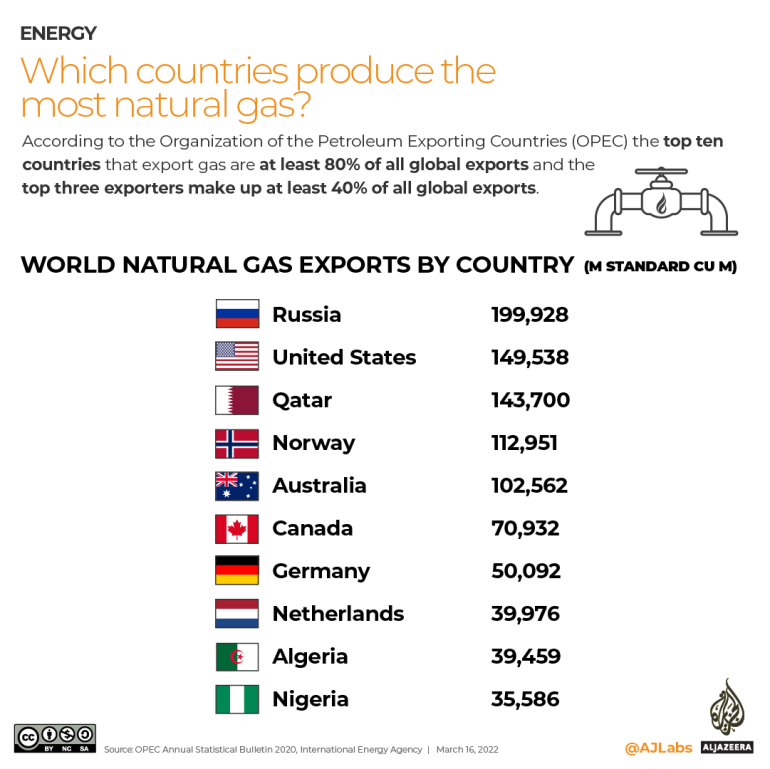![]() Deputy Prime Minister & Minister of Foreign Affairs Mohammed bin Abdulrahman Al-Thani meets Dr. Robert Habeck, German Vice Chancellor & Federal Minister for Economic Affairs & Climate Action in Doha on 20 March 2022 [MBA_AlThani_/Twitter]
Deputy Prime Minister & Minister of Foreign Affairs Mohammed bin Abdulrahman Al-Thani meets Dr. Robert Habeck, German Vice Chancellor & Federal Minister for Economic Affairs & Climate Action in Doha on 20 March 2022 [MBA_AlThani_/Twitter]
____________________________________________________________________________________________________________________________________________
Mon 21 March 2022:
Germany and Qatar have reached a long-term energy partnership, a German official has said, as Europe’s biggest economy seeks to become less dependent on Russian energy sources.
Russia is the largest supplier of gas to Germany and German economy minister Robert Habeck has launched several initiatives to lessen Germany’s energy dependence on Russia since it invaded its neighbour Ukraine.
Qatar’s Emir Sheikh Tamim bin Hamad Al Thani met Habeck on Sunday and the two discussed ways to enhance bilateral relations, particularly in the energy sector, the Emiri court said in a statement.
A spokesperson for the German economics ministry in Berlin confirmed on Sunday that a deal had been clinched.
“The companies that have come to Qatar with (Habeck) will now enter into contract negotiations with the Qatari side,” the spokesperson said.
In a statement, Qatar said that for years it had sought to supply Germany but discussions never led to concrete agreements.
Qatar said it agreed with Germany that “their respective commercial entities would re-engage and progress discussions on long term LNG supplies”.
Habeck also met Qatari Minister of State for Energy Affairs Saad Sherida al-Kaabi in Doha, where they discussed energy relations and cooperation between Qatar, one of the world’s top natural gas exporters, and Germany, and ways to enhance them, according to a statement from al-Kaabi.

In late February, German Chancellor Olaf Scholz announced the construction of two new terminals for liquefied natural gas in response to what some critics said was Germany’s over-reliance on Russian gas. The terminals are to be located in Brunsbuttel and Wilhelmshaven in northern Germany.
Germany intends to phase out its nuclear power production by the end of this year, leaving observers questioning how Europe’s biggest economy will fulfill all of its energy needs.
____________________________________________________________________________________________________________________________________________
FOLLOW INDEPENDENT PRESS:
TWITTER (CLICK HERE)
https://twitter.com/IpIndependent
FACEBOOK (CLICK HERE)
https://web.facebook.com/ipindependent
Think your friends would be interested? Share this story!





